Folks, the boss is on vacation so the Bistro’s closed this Monday. We’ll reopen soon with a new summer menu that will make you forget everything you ever thought you knew about rhubarb. Huzzah until then.
Monthly Archives: June 2013
Wandering
 My darling “hobohemian” daughter—
My darling “hobohemian” daughter—
You once asked me why I feel less lost wandering, and more at rest when I was moving. Since we are about to embark on a long journey—perhaps even the beginning of several changes, shifts and moves—I decided this would be a good time to try to figure out why.
The first reason, of course, is the search for wonder.
When I was young, I really disliked going to bed; the world was so full of wonder and excitement that I was afraid that I would miss something. Maybe it was just because my parents were (and still are) exciting, brilliant people, maybe it was because they instilled and cultivated a sense of wonder in us, but every moment seemed to be a potentially enthralling adventure. When my brother James’ breathing slowed to a regular rhythm, I would sneak out and sit as close as I could to the living room, listening. You may recall that I am still generally the last one to bed and the first one up; I still don’t want to miss anything.
last one to bed and the first one up; I still don’t want to miss anything.
I feel that way about the big wonderful world, too. There is just so much there—thousands and thousands of wonders to be observed, to be felt and smelled and tasted, to be experienced, to be made into stories. There are giant mountains and castles and oceans, and tiny flowers growing out of sidewalks and boulders, food in bright curried and wine rich colors, new songs and noises to be heard, and a mysterious, fantastical cast of human beings, each with their own little charms.
I like to think that I am a connoisseur of wonder, but I might just be a hopeless junkie. I am hopelessly addicted to new experiences, and I get shaky and cranky when I have to go without wonder.
It is almost like going without the sight of a smile.
Secondly, it keeps the forces of my lost-ness and entropy at bay.
 Entropy, my dear, is not a fierce storm or a wild maelstrom; it is a slow decay into a constant state of stasis and stability. A static homogeneity fills me with dread. Creation, on the other hand, is chaos. Movement is a force against entropy, a refusal to the inevitable decay, a brilliant—though erratic and dangerous—foray against the dullness of aging and decline; it is a choice to force oneself to live each moment fully. Not all who are lost wander, but we lost wanderers find so much that we can always be guests to each new day.
Entropy, my dear, is not a fierce storm or a wild maelstrom; it is a slow decay into a constant state of stasis and stability. A static homogeneity fills me with dread. Creation, on the other hand, is chaos. Movement is a force against entropy, a refusal to the inevitable decay, a brilliant—though erratic and dangerous—foray against the dullness of aging and decline; it is a choice to force oneself to live each moment fully. Not all who are lost wander, but we lost wanderers find so much that we can always be guests to each new day.
Finally, there are few things in this world—in fact, you might be the only thing—that I value more than freedom.In general, freedom is at the core of what it means to be human;  we have survived and persevered because we are not dependent upon the intuition of instinct, but can choose and adapt ourselves. This ability to transcend where we were born and what we are born with has allowed us to flourish from the icy Yukon to the burning Kalahari.
we have survived and persevered because we are not dependent upon the intuition of instinct, but can choose and adapt ourselves. This ability to transcend where we were born and what we are born with has allowed us to flourish from the icy Yukon to the burning Kalahari.
Freedom allows us to become who we chose to become. We are thrown into this world without a fixed essence, a pre-set purpose, and we create and constantly recreate our selves. We even have the privilege of creating meaning, of finding meaning, in this indifferent but wonderful world.Herder and Sartre aside (yes, those are their ideas), you know that I fear a cage or a prison—even an enclosed space—more than anything else—it is one of the things you and I have in common. To be happy, I must be free; I must have choices. To be trapped,  even in a benevolent trap, is to fall into neurotic decay and slowly wither inside. Even through the physical pain—and it was powerful and terrifying—of my lost arm and kidney failures, what I feared most was losing my freedom.
even in a benevolent trap, is to fall into neurotic decay and slowly wither inside. Even through the physical pain—and it was powerful and terrifying—of my lost arm and kidney failures, what I feared most was losing my freedom.
To be on the open road is to fly, unencumbered, and to feel the glorious stretching of muscle and sinew against the weight of inertia and gravity.

“Allons! the road is before us!” Wonder, creation, and freedom await us. That is why I travel.
Oh, also because the food is great.
Your travel companion and Papa—
PS: Speaking of wandering, I will be out of the Bistro for the next 4 weeks. I leave it in Brandon & Peirce’s capable hands. I might post, but I might just be in the moment. I am more likely to post pictures to my tumblr account, since that is what it does best. I certainly will not post recipes, since I will be away from my laboratory, but I will be gathering ideas in Germany, Switzerland, France, Ireland, Scotland, and England.
I will miss you all.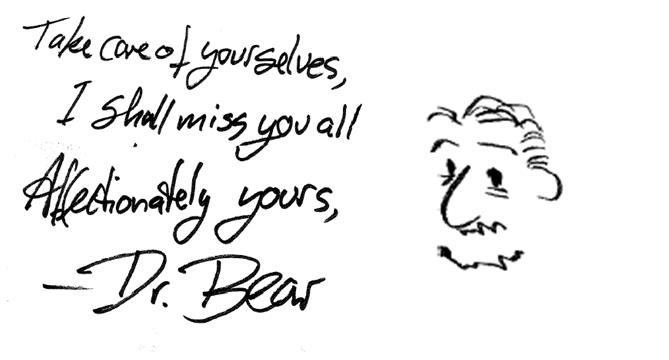
Allons!
Song of the Open Road
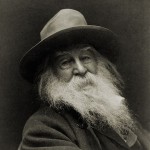 by Walt Whitman
by Walt Whitman
Our Blinkered, Biased Friends
How biased are you? What about your friends? One of these questions is simpler to answer than the other.
It’s easier to triangulate our friends’ judgments than our own. Imagine, for instance, sitting between two friends who are rooting for opposite teams in a game you’re not personally invested in. And let’s say that they are both emotionally invested enough in the outcome that they’re at least tempted to view each call in favor of their team as fair but each call against their team as a travesty. You’re in a tough position as a friend of both people but in a great position to test which of these people is more objective. You get to evaluate each call by the officials, and to hear both sides’ responses to those calls, without being swayed by your own elation or devastation as a fan. If you put your mind to it, you can probably give a fair judgment about which of these two friends is best able to set aside what she wants to be true and see accurately what actually is true. (Please be warned that usually isn’t a service that people want from their friends unless they’ve asked for it. And sometimes not even then.)
It’s much tougher, of course, to triangulate your own judgments like this. You can try, but you have to put yourself in two positions at once: you have to be both the interested fan and the disinterested observer of the fan. Most of us don’t do this naturally but there are some tricks that can help, as one of my favorite stories shows. Early in his career an Israeli psychology professor was put in charge of a special project. He headed an interdisciplinary committee tasked with running a major conference and then publishing the conference papers as a book . As it happens, the theme for this conference was objectivity.
At the committee’s third meeting the psychology professor said, “Let’s use some of these objectivity developing techniques we’ll be talking about at the conference on ourselves. First, let’s check out our subjective intuitions. How long do we think that this whole project is going to take from start to finish?” They went around the room giving their best guesses. Their answers ranged from twelve months to two and a half years, with eighteen months as the median answer.
Then the professor said, “Now let’s ground our judgments more objectively. Dean, you’ve worked with two of these projects already, correct?”
The dean said he had.
“From what you’ve seen so far, would you say our group is performing better, worse, or on par with those other two groups?”
The dean answered, “Probably a bit worse, actually. We’re going a little slower.”
Then the professor asked, “And how long did those two earlier projects take from start to finish?”
The dean blanched. “They both took eight years.” He had had this evidence at his disposal when he gave his more subjective answer earlier, yet then he had said he thought the current project would only require two years.
It took nine.
So it is possible to get a more objective view of the biases that skew our own judgments. But there’s another challenge, which the article “Objectivity in the Eye of the Beholder” reveals. We all feel like we try to check how biased or objectivity we and our friends are. And when we see one of our friends being a typical unreasonable fan – the kind who sincerely believes that the referees are trying to make her team lose – we’re generally comfortable chalking their behavior up to their biases. But what about when we see our own biases, as the dean did? Are we as willing simply to say, “Well, I guess I’m biased”?
Not at all. And in a sense, there’s a good reason for this. After all, when I do recognize my own bias, I don’t usually just throw up my hands. I either try to make the appropriate adjustments or else convince myself that I didn’t really make a mistake in the first place. But note that both of these responses are ways of preserving my sense that my judgments are consistent with reality. In the one case I commit myself to making better judgments, whereas in the other I decide that reality really is in accord with the way I see it. Each is preferable to accepting that I’m just consistently off. That would be like beginning most sentences with, “I know this is wrong, but -” That sort of nonchalance is just terribly difficult to maintain.
Unfortunately, this makes us much more likely to recognize other people’s biases than our own. Since I thought this was an interesting finding I started sharing it at conferences. I found that people agreed wholeheartedly. I had never before seen whole rooms shake their heads so enthusiastically. Finally I realized this might be additional evidence for the same point, so I added a question as a test. The next time I presented the conclusion, “People have no trouble recognizing others’ biases but tend not to see their own,” and once again everyone nodded yes. So I asked, “Are you nodding because you think this is true about other people, or because it’s true about you too?” This time I received silence. Then about half the room laughed and the other half frowned.
So here’s the challenge: Can you sustain this contradiction, Whitman-style, and accept that your biggest bias might be that you cannot see your own biases? Or is this one of those Philosophical puzzles that is fun to play with but that we have to let go when it’s time to get on with our lives? (The classic example, of course, is Zeno’s paradox, which demonstrated convincingly that’s it’s impossible to ever get from point A to point B. At some point Zeno probably told a friend he was coming over that evening to share his great new paradox. I’m hoping the friend listened attentively and then asked, “Then what are you doing here?”)
Guys: Let’s be Men!
I’m not sure if you remember, but a while back there was a day we had a series of conversations, in which the phrase “Because he’s a boy” kept coming up. An example I recall was you wondering why in the world anybody would try to open a banana with a 10 inch butcher knife, and me explaining “because he’s a boy” (luckily, a boy with 10 fingers, for the time being).
Boys do silly, fun and sometimes dangerous things. It is part of being a boy. It is perplexing if you have never been one, but what are you going to do?
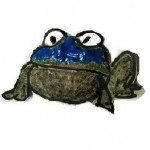
ahem!
However, at some point, being a boy should stop—well, unless you are the one boy who never grows up; Peter Pan can be grand-fathered in, I suppose. Although if he never grows up, is the word grandfather appropriate?
As I was saying, at some point, being a boy should stop—or at the very least, diminish. In the greater life-cycle of the male of the species—we will use the generic term “guy’—there should at some point be a transition from boy to man. Yet, there seems to be a marked trend at the present away from this, and towards a prolonged male adolescence. Guys who are way past the point where they should have become adults are still being boys. It has even spawned a whole movie genre which the New York Times likes to call the “Man Child.” It appears to be making Judd Apatow rich. Of course, the target audience for these movies is guys in their 20s who themselves do not want to grow up. It can even extend to middle aged men with movies like Grown Ups. I’m not entirely sure it is possible to produce a comedy in which the men are not immature.
The whole thing mystifies me.
 Don’t get me wrong: I did enjoy being a boy, and was quite good at it (I have the stories, some of which you have heard, and the scars to prove it). Nevertheless, I remember looking forward to being a man. I wanted to be a man (OK, to be honest, I wanted to be a man, 36, and tenured, but that might just be me). A big part of it, though, was that my heroes were men. My movie heroes—John Wayne, Humphrey Bogart, Gregory Peck, Paul Newman, Robert Redford, etc.—were all men, even, what you might call “real men.”
Don’t get me wrong: I did enjoy being a boy, and was quite good at it (I have the stories, some of which you have heard, and the scars to prove it). Nevertheless, I remember looking forward to being a man. I wanted to be a man (OK, to be honest, I wanted to be a man, 36, and tenured, but that might just be me). A big part of it, though, was that my heroes were men. My movie heroes—John Wayne, Humphrey Bogart, Gregory Peck, Paul Newman, Robert Redford, etc.—were all men, even, what you might call “real men.”
Movie heroes, however, aren’t as vivid as flesh and blood heroes. My biggest reason for wanting to be a man was that the men in my life made it look so cool. My uncles were (and remain) people I wanted to be like. My grandfathers were both really great to spend time with. Watching Dad engaged in after dinner conversation with other men—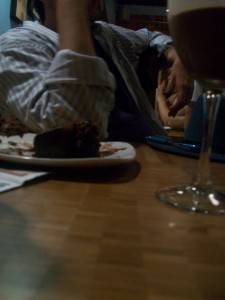 Fred Norris, Scott Bartchy, and the occasional passer through like Bob Wetzel or Bob Fife—was fascinating, and more entertaining than anything we boys did.
Fred Norris, Scott Bartchy, and the occasional passer through like Bob Wetzel or Bob Fife—was fascinating, and more entertaining than anything we boys did.
My father made being a man look brilliant and incredible.
He still does.
My goal was to be like him.
It still is.
Although being a boy was fun, I didn’t want to be a boy indefinitely.
I wanted to grow up and be a man.
I’m not sure at what point it became more appealing for guys to be boys rather than becoming men. Certainly by the time The Simpsons (which I love) came around, it was clear that it was cooler to be Bart than to be Homer (also more fun to be naughty, but that is another day’s column). But this shift is an alarming trend, and must be stopped before the entire world is populated by Adam Sandler wannabes.
Now, it won’t do for me to just say: Hey! Grow up! I should give some reasons why to be a man.
First (and this is a universal guy reason for doing things): Chicks dig it.
Although there is something charming about a man who can be a boy, there is nothing at all appealing about a 200 pound little boy.
If they are trying to impress someone, especially if they are hoping for any kind of relationship, maturity is a real draw and immaturity is a real turn-off, don’t you think? And you might be the kind of person a guy might want to impress.
Related to this, by the way, a suit and a tie are much sexier than a ratty sweatshirt, baggy shorts, and a backwards baseball cap.
Also more appropriate for church, the theatre, or a date.
Don’t get me started on Man-Child wardrobes, but do let me warm the guys who are reading this to take off your hat in the Bistro; Wode Toad has a really long tongue.
Secondly: Responsibility.
Yes, I know that this is a scary word, and it is probably why these boys are avoiding growing up in the first place, but think about it: responsibility is a part of freedom. It is the price one pays for getting out of footed pajamas and the high chair and joining the adult world. As an analogy, getting a car means having a lot of freedom to go places, but it also means suddenly have a lot of responsibilities which keep it running. Being a grown-up is similar; it gives you new freedoms to go places, but it has its costs.
Being a man means taking responsibility for yourself and for others; it’s what men do. This may seem rather dull at the least and terrifying at the worst, but it has its perks.
Third: Fun.
Again, these boys probably are avoiding growing up because it doesn’t seem to be fun, but one can be a man and still be as playful as when one was a boy.
My father can be a very dignified gentleman. He also once spent a half an hour on his hands and knees in the kitchen entertaining a 2 year old by making zucchini and summer squash dance and run around.
My uncle Dale is quite manly—even to the point of flying planes and working lumber in the Northwest—but is also sillier than any giggling little boy I know. He is also a world-class imaginary jacks player (personally, imaginary table tennis is more my style, mostly because it is noisier). Certainly he has more fun than most of the knuckle dragging college boys I see mumbling through the streets, slouching towards Numan’s Cafe & Sports Bar. Read Brandon’s Articles on playfulness–he is more fun because he is responsible for the girls, not less.
Men still play basketball, still yell at games, still play games, go on road trips (my Dad circumnavigates the globe, your dad flies his own plane), camp, kayak—you name it.
Finally, and most importantly for me: Pride.
 This is why I would not be able to abide being a permanent boy. Whenever I see one of these immature guys, I want to yell: where is your pride, man? It’s humiliating! To be a man is to take responsibility for who you are and what you do and to be able to look upon both of those and take pride in them. It is taking responsibility for others that you care about, or for commitments you have made, and taking pride in them. What does the overgrown boy have to take pride in? High Scores on their games? Their Graphic Novel collection? OK, that’s not so bad, but remember: by playing and by reading one is pretending to be somebody one can take pride in; by being a man they could actually be that person.
This is why I would not be able to abide being a permanent boy. Whenever I see one of these immature guys, I want to yell: where is your pride, man? It’s humiliating! To be a man is to take responsibility for who you are and what you do and to be able to look upon both of those and take pride in them. It is taking responsibility for others that you care about, or for commitments you have made, and taking pride in them. What does the overgrown boy have to take pride in? High Scores on their games? Their Graphic Novel collection? OK, that’s not so bad, but remember: by playing and by reading one is pretending to be somebody one can take pride in; by being a man they could actually be that person.
I don’t accept that boys will be boys; boys are meant to become men.
Take pride in yourself and grow up. Be a Man!
So, that is why one should be a man, but the bigger question, is: How does one go about being a man?
Of course, it goes without saying that mistreating women is cowardly and un-manly, and that being a man of quality also means treating children and animals kindly, but there are so many other practices involved in being a man…
Please greet Richard from me, Meg, and wish him a Happy Father’s Day.
For the rest of you: a home cooked meal is the best thing for Dad (well, second to sailing), but if that doesn’t seem practical, remember that a hand-written note is always appropriate, if not that—would it kill you to call? If nothing else, feel free to bring the great man to Robert’s Philosophy Bistro.
Apple Chai Muffins
 So, a friend of mine who loves muffins was coming to town, and so we decided we should whip up some of the Bistro’s wonderful muffins. However, then she commented on not liking the “weird” stuff we do, like beets and rhubarb (I suppose Srirachi is right out). So, we came up with this rather normal muffin recipe.
So, a friend of mine who loves muffins was coming to town, and so we decided we should whip up some of the Bistro’s wonderful muffins. However, then she commented on not liking the “weird” stuff we do, like beets and rhubarb (I suppose Srirachi is right out). So, we came up with this rather normal muffin recipe.
Ingredients:
- 2 cups flour (Whole wheat, white, both, as you wish)
- ½ cup of sugar
- 2 tsp baking soda
- ½ tsp salt
- ½ cup brown sugar
- ½ tsp cardamom
- ½ tsp cinnamon
- ½ tsp ginger
- ¼ tsp cloves
- ¼ tsp nutmeg
- 1 cup diced apples
- ½ cup chopped golden raisins
- ½ cup rolled oats
- ½ cup walnuts
- 2 cup cooked sweet potato (I like it baked, but I assume canned will do)
- 3 eggs
- ½ cup buttermilk or Greek yoghurt
- ½ cup oil (it might work without this; I liked making it with coconut oil.)
- 2 tsp. vanilla
- ½ cup brewer’s yeast (optional)
Step 1, Prepare Ye the way: Preheat the oven to 350°, chop the apple, either grease the muffin tins or put in the cupcake liners (I usually spray a little canola oil in the bottom of these to make things come out easier). I get 2 dozen medium sized muffins out of this mix.
Step 2, sifting the dry ingredients: In one bowl crumble up the brown sugar, then sift (mix if you don’t have a sifter) in the flour, white sugar, baking soda, brewers yeast, and salt. Mix thoroughly.
Step 3, mixing the wet ingredients: In another bowl, mix the apples, sweet potato, spices, vanilla, oatmeal, and walnuts,.
Step 4, combining the big mess: Add the dry ingredients to the wet ones and mix well. You want to make sure the individual bits of apple are each coated to keep them from getting too clumpy. Now mix in the eggs, buttermilk, and oil. The consistency should be much firmer than batter, but a little more liquid than cookie dough.
Step 5, baking: Fill two dozen or so muffin tins. Bake at 350 degrees for 30 minutes. See how they look. Stick a toothpick in one and see if it comes out battery.
 Step 6, sharing: As always, these are great for breakfast, but especially great to share with a friend or loved one. Invite somebody over for Tea or an Herbal Infusions or some sort (maybe even for Chai). Better yet, brag about them and see if you can get somebody to invite you over for tea just to see how good they are.
Step 6, sharing: As always, these are great for breakfast, but especially great to share with a friend or loved one. Invite somebody over for Tea or an Herbal Infusions or some sort (maybe even for Chai). Better yet, brag about them and see if you can get somebody to invite you over for tea just to see how good they are.
Atoms and Anecdotes
I’ve been thinking lately about the reality of stories. I don’t have much penchant for doing science myself, but I respect its ability to uncover truth enough to consider the scientifically revealed universe as fundamental reality. That is to say, as much as I struggle to understand how atoms work, much less quarks, I believe that reality necessarily consists in the interactions of such particles. By contrast, I am significantly more invested in stories – hearing them, creating them, passing them on – even though I am much less certain about the extent to which I should consider them real. Now, you may say, “What difference does that make?” – but this is a Philosophy bistro, after all, and that’s really kind of a sour attitude you’re taking. Now here: have a refreshing cup of lime and mint-infused ice water as I get your appetizer order in. You’re welcome.
My stepdaughters know I’m full of it. We’ve lived in the same house together for a little over a year, and they’ve gotten in the habit of responding to almost anything I say by asking, “Really?” I always immediately confess if I’ve made up the thing I just said, and try to keep to something close to a 50% truth ratio going. It’s particularly fun when I’ve found some fact that seems so absurd that it must be fiction, so that I get to swear “Yes” over and over to each repeated “Really?” At the same time, it’s as important to me as it is to their mother that we be truthful with each other when we need to. Lying about, say, whether you threw a toy at your sister is never okay. What’s more, the girls seem to have some predilection toward science, and especially because I know how easy it is for girls and women to get pushed out of those fields, I’m doing my best to encourage empirical observation and other basic science skill sets to help them stay on that track if they choose to. Yet I smile most when they tell stories too – when they engage in some ridiculous word play or spontaneously come up with an absurd explanation. As long as we still keep track of what the truth is for when we need it, I value that kind of play more than I value the truth.
So maybe it just doesn’t matter whether stories are real or not. Except that, as a matter of fact, I think they are. That reality isn’t, of course, the same as that enjoyed by atoms and quarks. But stories are an aspect of our shared environment. Saturday Night Live’s Jack Handy once quipped, “I bet one legend that keeps recurring throughout history, in every culture, is the story of Popeye,” which is funny because that’s actually pretty hard to imagine. Popeye doesn’t seem a likely candidate for a cultural universal. But he is widely known to Americans, so much so that your audience is likely to understand many references to him instantly. I’m somewhat embarrassed to admit that nearly every time I throw a little olive oil in the pan I hear his scraggly voice singing, “Oh Olive Oyl.” (As voices in your head go, this isn’t a bad one.) But even if most people wouldn’t remember that, they would know that spinach instantly makes you extremely strong and prone to getting into fistfights with your enormous forearms. This isn’t a tremendously rich store to draw on. At most it might liven up, say, your encouraging your daughter to eat her spinach, or to not get in fistfights, or to eschew ethnic profiling. (What ethnicity was Popeye, anyway? And has anyone ever actually talked like that?)
Other stories are much richer, though. Sacred texts like the Torah, the New Testament, and the Quran have been passed down perhaps most of all through individual stories like the parable of the good Samaritan, which people repeat in order to make sense of their own and others’ actions. (The Coen Brothers’ A Serious Man has fun with this by presenting a series of inscrutable parables, including “The Goy’s Teeth,” that it resolutely refuses to explicate for the audience.) Harriett Beecher Stowe’s Uncle Tom’s Cabin provided such a condemnatory picture of slavery that pro-slavery authors fought back with competing novels with titles like Uncle Robin, in His Cabin in Virginia, and Tom Without One in Boston. But Stowe’s narrative largely won out and her account of Eliza’s escape with her son over the icy Ohio River provided common inspiration for abolitionists all over the North in the decade leading up to the Civil War. Generations later, many African-Americans would so object to aspects of Stowe’s characterization of slaves that “Uncle Tom” would become a denigrating epithet for a black man taken to act submissively toward whites.
All of these examples indicate some of the many ways that stories provide a shared means of interpreting our experiences, without which we would struggle much more to understand each other. Maybe if stories can have that much effect, it doesn’t matter whether we consider them “real” or not. “Made up” is a kind of real too.
How I came to talk to myself
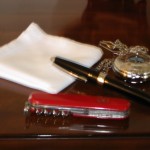 Some people assume I have always talked to myself.
Some people assume I have always talked to myself.
My wife likes to tell the story of walking into the kitchen one morning early in our marriage and asking:
What are you doing?
Nothing, really.
You were waving your arms.
Oh. I was lecturing.
To who?
Hmm. The toaster, I think.
I remember exactly when I started talking to myself.
I was 12 and sitting all alone at a window seat on a crowded bus.
Earlier that spring, at school, as the result of some extreme creativity not encumbered by the least bit of common sense, I had broken my left arm. The accident splintered the humerus into several fragments and badly damaged the radial nerve serving the top side of my arm. As a result, I lost most of the feeling and muscle control of my left arm beneath the elbow and the top of my left hand. While the ER doctor was trying to set the bone without any pain killers, but with the jagged bone grinding down upon the nerve, I learned the meaning of pain; the next 6 months of physical therapy would teach me even more about pain, but also the meaning of perseverance. The experience remains the third or fourth most painful experience of my life. Because extreme pain pulls you into yourself, it is inherently isolating and lonely; for me, perseverance is also nested in loneliness.
Unlike my previous hospitalizations, which had been for my epilepsy, the broken arm was something tangible, physical and manageable, so there were things I could do; I could own and work at a broken arm. It also helped that I could earn tips smuggling beer, wine, cigars and cigarettes into the injury ward, and that the men I was with looked out for me.
My parents also helped me with this, both by being very supportive and by encouraging me to take ownership of my own healing (also by not dwelling on how serious this was and the possibility I might never regain use of that arm). After I had come home from the hospital, my dad sat me down and explained that my brother could not be left alone in the afternoons, and that I would have to learn to take the bus, by myself, clear across town twice a week for physical therapy.
 Several weeks later, I remember being on the bus on the way home, and feeling terribly lonesome for somebody to share the bus ride with me. I was proud of my independence, and knew I could manage, but the long solitude of the rides and the waiting rooms wore on me. I am not sure that I am exactly an extrovert, but most people who know me will point out that I certainly am talkative, and not having anyone to talk to is difficult for me.
Several weeks later, I remember being on the bus on the way home, and feeling terribly lonesome for somebody to share the bus ride with me. I was proud of my independence, and knew I could manage, but the long solitude of the rides and the waiting rooms wore on me. I am not sure that I am exactly an extrovert, but most people who know me will point out that I certainly am talkative, and not having anyone to talk to is difficult for me.
Out of my desperate need for someone to talk to, I suddenly realized that I could have a conversation with myself. It might strike some people as odd that I had never considered this before, but I was the youngest of a talkative family and shared a room with my brother, and so getting solitude had always been more of a concern than getting company.
The dialogue that started then and continued for decades tended to be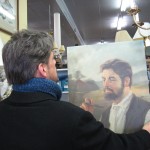 between two sides of myself—the more emotional, dreamy part of me and the more rational, logical, controlled part. This is a pretty natural division within me, and also was good for this situation, since the emotional part of me was scared and lonely and the rational side of me was reassuring. As the years went by, it was also handy, since the rational side of me tended to be my conscience and also more cautious and sensible. It is a conversation, an internal dialogue, that has continued now for more than 3 decades.
between two sides of myself—the more emotional, dreamy part of me and the more rational, logical, controlled part. This is a pretty natural division within me, and also was good for this situation, since the emotional part of me was scared and lonely and the rational side of me was reassuring. As the years went by, it was also handy, since the rational side of me tended to be my conscience and also more cautious and sensible. It is a conversation, an internal dialogue, that has continued now for more than 3 decades.
Yes, there is almost always a dialogue going on in my head, and always at least one song playing. Most of the time, there is also some drama; there is at least one—often several—really strong emotions wrestling it out beneath the visible surface—anger, passion, desire, despair, joy, grief, and a lot of affection. There is usually, some food, too. It is like having a rather bizarre (and poorly lit) Café every hour that I am awake.
So, because I have a really bad case of writers block, I decided to start blogging, and to see if externalizing the dialogue would get me going. When Brandon suggested that the blog be “Robert’s Philosophy Bistro,” the idea was perfect. It still is, and, believe it or not, this is the 20th Entrée.
Thank you for dropping by, feel free to leave a question, can I get you a menu?
Shoo Fly Scones
My daughter resently challenged me to invent a Shoo-Fly Scone. My favorite food is Shoo-Fly Pie. I don’t tend to be the person to deal in superlatives or easily make lists, but this one is undoubtedly my favorite.
 The pie was developed by the Pennsylvania Dutch, a vague term used for the German Anabaptist dissenters (like the Amish or Mennonites, as distinct from the Moravians) who settled in Pennsylvania in the 19th Century. I imagine that in late winter, after most of the previous summer’s fruit was gone, some farm wife somewhere decided to make a pie out of molasses. The result is wonderful–wet & gooey on the bottom, like a light spice cake in the middle, and posdery and sweet on the top. It is so sweet & sticky that it attracts flies (which is how it gets its name).
The pie was developed by the Pennsylvania Dutch, a vague term used for the German Anabaptist dissenters (like the Amish or Mennonites, as distinct from the Moravians) who settled in Pennsylvania in the 19th Century. I imagine that in late winter, after most of the previous summer’s fruit was gone, some farm wife somewhere decided to make a pie out of molasses. The result is wonderful–wet & gooey on the bottom, like a light spice cake in the middle, and posdery and sweet on the top. It is so sweet & sticky that it attracts flies (which is how it gets its name).
This adapts the flavor as a scone, which seems appropriate, since I consider Shoo-Fly to be the ideal tea or breakfast food.
An interesting side note: apparently, pronouncing scone as rhyming with cone as in the Coen brothers rather than con as in consanguinity will earn you a long rant from Wode Toad. If you walk in during the rant and mispronounce it, he will throw things. How is your head, Brandon?
Ingredients:
- 2 ½ cups flour (Whole wheat, white, both, as you wish)
- ¼ cup of sugar
- 1 tsp baking powder
- ½ tsp baking soda
- ½ tsp salt
- 1 tsp cinnamon
- 3 Tbsp cold butter
- ¾ cup plain yoghurt
- ½ cup molasses (or dark corn syrup, or a mixture)
- 1 egg
Step 1, Prepare Ye the way: Preheat the oven to 400°, assemble all the ingredients, run to the store because you are out of molasses, and grease a baking sheet.
Step 2, sifting the dry ingredients: In one bowl sift (mix if you don’t have a sifter) the flour, sugar, baking posder, baking soda, cinnamon, and salt. Mix thoroughly.
Step 3, pastry cutting: Cut in the ice cold sliced butter, using either a pastry cutter or a knife. I suppose some processer thingy can do this, too, but I don’t own one. The result should be crumbly. Take out a quarter cup of this, mix it with a sprinkle of sugar, and set it aside for the crumble topping.
Step 4, mixing the wet ingredients: In another bowl, mix the yoghurt, the molasses and the egg.
Step 4, combining the big mess: Add the wet ingredients to the dry ones and mix well. THe results might be a bit gloppy. Try not to overwork the dough.The consistency will be much firmer than batter, but a little more liquid than cookie dough, a little drier than raw muffin.
Step 5, baking: Flouring your hands, form little scone sized patties out of the dough and put them on the greased. Bake at 400 degrees for 15 minutes. See how they look. Stick a toothpick in one and see if it comes out battery.
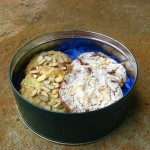 Final Step, share and enjoy They do make a handy breakfast, which is much easier to eat in the car than the pie. To your left, they are pictured with my Rhubarb-Almond Scones. They are perfect for sharing over breakfast, or in the afternoon over tea, or for dropping by and giving to friends.
Final Step, share and enjoy They do make a handy breakfast, which is much easier to eat in the car than the pie. To your left, they are pictured with my Rhubarb-Almond Scones. They are perfect for sharing over breakfast, or in the afternoon over tea, or for dropping by and giving to friends.


